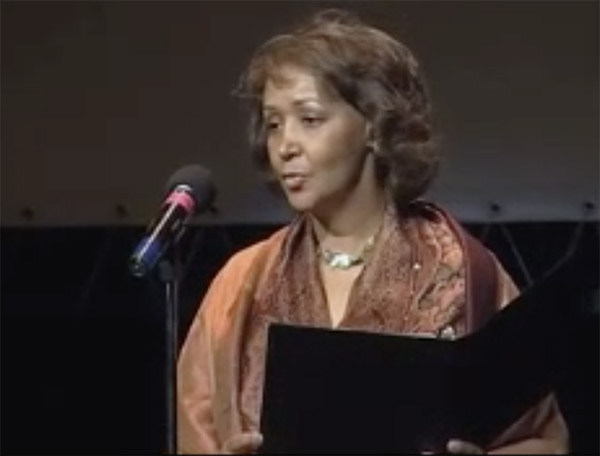As a mother there is nothing that prepares you for seeing your son strapped onto a gurney and surrounded by 8-10 police and firefighters as they carry him out of your home. How did we ever get to this place?
Making the decision to bring the outside world into our home wasn’t easy. It meant everyone in the community would know what was going on in our home and in our family. Our lives could be judged by others.
The first call to the police was hard, but it was the only way to get help. Little did I know that each time I needed help, the call would not get any easier. I often thought it was better just to keep my son safe at home than out in the world full of obstacles that would get him in trouble.
At seventeen, the joy of his laughter changed into a sullen and withdrawn person who slept 15 hours a day in a darkened room and wandered our home all night long. I feared his footsteps at night because he would stand in the doorway of my bedroom insisting that I hid money and account information from him. He wanted answers I didn’t have and there was no reasoning with him about it.
During his darkest times, I worked 10-hour days. I needed and wanted the distraction. Also my job provided me with the reinforcement that I was doing something right.
Coming home from work I anticipated the tensions and challenges of his illness before I opened the door. If my son was still asleep, I took advantage of the time by making very little noise. Of course, the longer he slept, it was likely he’d be up all night. I don’t remember how we got through this time. All I know is that I had to make it through each moment.
How could I fear this child I gave birth to and who had brought such joy to our lives? A young man who had feared nothing as a child. At age three, he wandered into a field of horses because he wanted to pet them. At age four, he walked by himself along the bridge by the old Pojoaque High school gym because he wanted to go fishing. He was innocent, joyful and fearless.
When my son was diagnosed, I wanted to know what I needed to do to make it right and get on with life. Surprise, 14 years later and many sleepless nights, I’ve learned that a diagnosis of schizophrenia sets up many roadblocks. There are the questions of why, what did I do wrong, where do I get the right answers? How do I pay for the medicine and for the doctors for situations that literally can be a matter of life and death?
My son did not believe he needed the medicine, so we battled daily. Appointments were negotiations. If he went to his appointments, we would go out for breakfast. How many more breakfasts would it take to get him on track?
When someone mentioned that my son might become more cooperative when he was older, I listened eagerly. I deeply hoped he’d finally understand his need for medicine and doctor appointments. This may be the first time you’ve heard a woman begging for 10 years to pass quickly.
One of my hardest lessons has been letting my children make their own mistakes. With my son, I tried to protect him from his illness. I tried to protect him from family who didn’t understand and could not accept his mental illness.
Well, life has a way of teaching me that I don’t have all the answers. I couldn’t help him “get over” this. So I did the next best thing, I sought help. I tried to find the answers through research, knocking on every door. Pride takes a backseat when you re-tell your story over and over to many strangers.
We had depended on the “system” to help make the right choices for my son. Time after time, the police had come and taken him to the hospital or jail but then he’d be kicked out and we were back on our own again. I realized that no one knew all the answers about my son. I had to take the lead in making decisions about his life. Through NAMI’s Family-to-Family program, I learned that we needed a plan of our own.
First, I alerted the local police to the possibility of a crisis at our home. Then I made a personal contact at the local hospital and another at the state hospital in Las Vegas. Since my son was not agreeing to take his meds, I knew there would be a crisis soon.
It came when my son walked into my room, picked up the television and threw it on the floor. Seeing the TV shatter, I knew the time had come to call the police. Now I just needed courage.
A short time later, my son was strapped to a gurney and carried out of the house. But I truly believe his destructive behavior was a cry for help. I was responding to that cry with my plan for action.
Seeing my son in the hospital was both good and bad. He was safe, compliant, cohesive, and he was getting better.
It was both many steps forward and several steps back before my son got his first apartment in Albuquerque. Now that he’s living independently, I worry whether he will be OK. Who will he invite home? Will he keep his place clean? Yet these are the same worries you have when you send your son or daughter out into the world for the first time. My worries are finally those of a normal parent.
It’s now been almost a year and half since he’s been in his own home. He is now in a better place in his life than I could have hoped for. I look forward to welcoming him home and visiting his home. I realize that often the hardest lesson was not for my son, but for me.
My expectations for him had to change and I had to learn to trust and appreciate him as a strong and intelligent survivor. I know my son is a loving, mischievous, caring human being. He takes care of himself, he is aware of his surroundings, he reaches out, he prepares his meals, he manages his money and he takes care of his home. What more could a proud mom ask for?
Sometimes I worry that I am no longer as important to him as he is to me. Suddenly I now have the opportunity to focus on my own priorities – what are they? Have I let my son’s diagnosis define me, the caretaker, and our family? Am I afraid of being happy and content with life? No, my fear is that it may all start to fall apart again and I will have to find the strength to battle the illness yet again.
Is there a gift delivered by this illness? Initially the response would be a resounding no! Would we pick the door labeled “schizophrenia”, No! And yet sometimes I ask, would I be the person I am today without this challenge? I can certainly say that I wouldn’t be standing here telling you this intimate story.
In looking back, I realize that I too isolated in the way Adam did. In drawing him out, I have also stepped out and joined a larger community as an advocate for mental illness. If there is a gift in this for me, it is that I am a stronger, bolder person.







